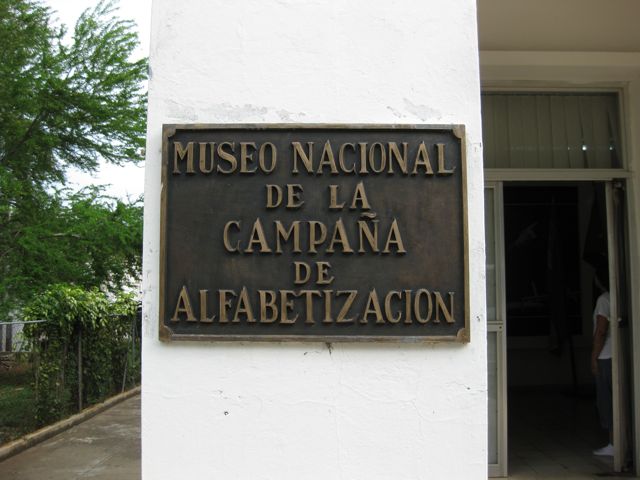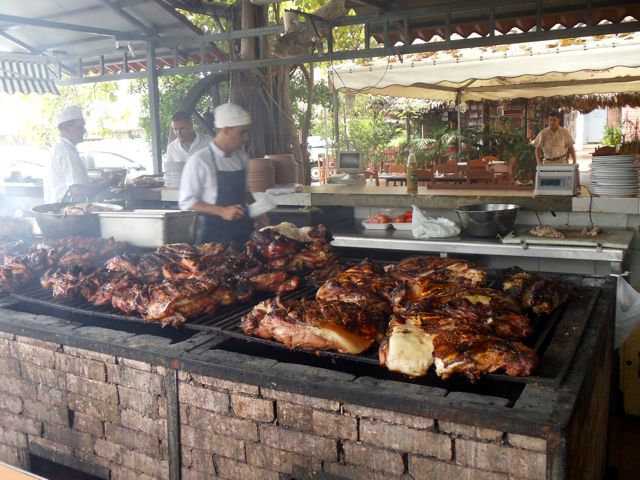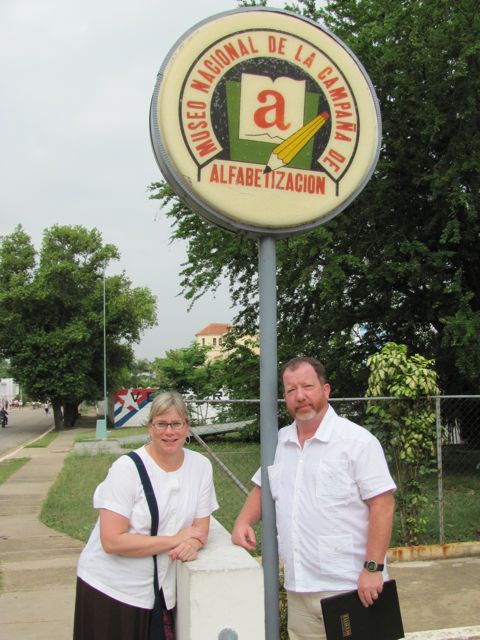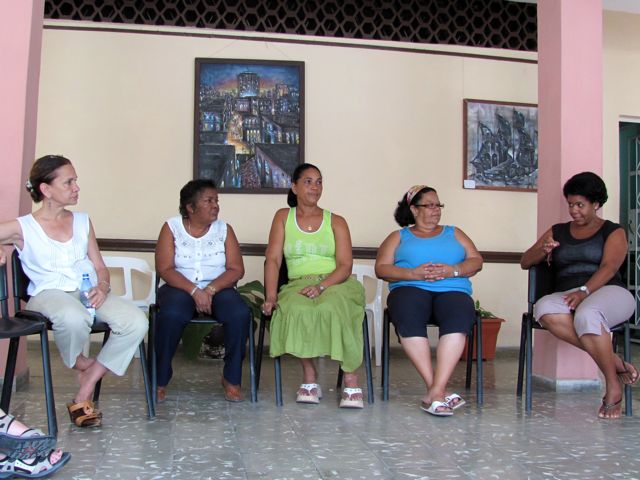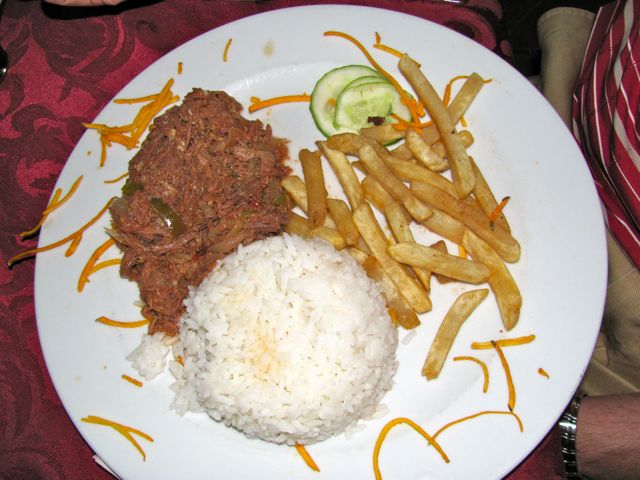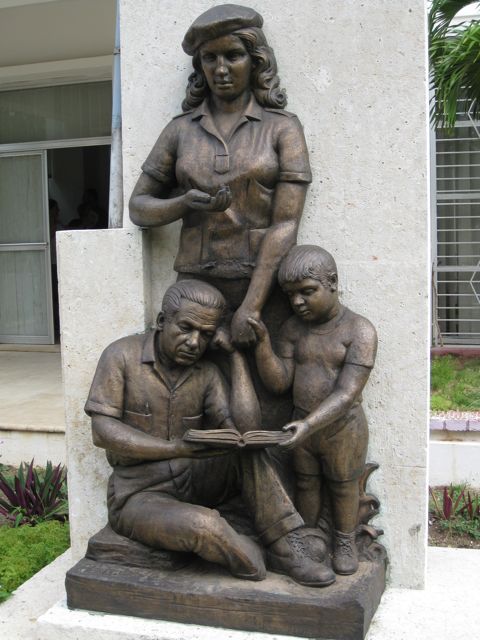Day Five – Mission Literacy
Little did we know that the road leading into the Museo Nacional de la Campana de Alfabetizacion would be so illustrative of the Cuban literacy movement. We turned into the former Batista military barracks, a sprawling compound of spartan, symmetrically placed buildings, and were met with over a half-mile of streets lined with Cuban students dressed in their national uniforms. Our guide informed us that this military grounds was the home of Batista’s army and was the location of the airstrip from which Batista fled as Castro advanced on Havana. After Castro assumed control, he pledged that the military installations would be turned into schools for the children of Cuba, and 50 years later, the children of Cuba are still reporting daily to participate in the process of becoming an educated Cuban – a process that began with military precision as an all out war on illiteracy.
This process of educating the people of Cuba is most famously told through the National Literacy Campaign started by Castro in an attempt to bring the entire Cuban population up to a first-grade reading level. To accomplish this, he called upon 105,000 youth aged 8-17 to be trained and then flood the countryside to provide individual, one-to-one literacy instruction to everyone in Cuba that could not read or write. In less than a year, Castro’s goal had been met – a truly impressive feat.
Our own tour bus driver was one of the youth who, at the age of 16, ventured into the rural villages in order to teach his fellow Cubans. When describing this experience to us he was so overcome with emotion that it became hard for him to continue. His reaction highlighted a much deeper political purpose for the National Literacy Campaign. We were not just talking about a need to have an educated populace – this campaign created an understanding for how all Cubans lived. It ingrained the importance of taking care of the Cuban community as a whole. Teaching reading was a way to build empathy, a way to connect rural and urban populations that had very little contact or understanding of each other, and promoted a deep cultural ethic for learning.
While the campaign is well behind us, the impact of this ethic has far-reaching impacts, one of which was highlighted in our second meeting today. We spent time meeting with the Comprehensive Workshop for the Reconstruction of the Neighborhood. After listening to the group’s process for researching, identifying, and developing solutions for community-based issues, Jim gave us the perspective that typical community development programs in developing countries can be limited because the community-based participants can lack the advanced education needed to implement and monitor their programs on the ground. The leaders of the Comprehensive Workshop were all highly educated and well versed in not just the needs of the community, but the solutions that will work within the community’s context. They had the knowledge and skills needed to identify, articulate, and monitor the needs of the community – a very powerful combination.
On the food front, today was a very porky day. We had two unique meals in very different locations, both featuring substantial quantities of pork (our dinner was translated as “old clothes”). We (Matthew, Jim, and Bill) actually ordered (we insist it was a miscommunication with the waiter) a side dish of just meat to further immerse into the Cuban experience. For those keeping score at home, that was an entrée of meat with a side of meat. Perhaps we will try some veggies tomorrow.
Matthew
